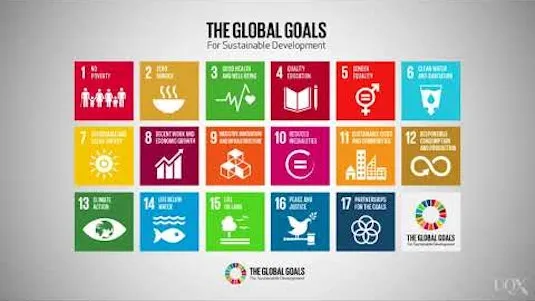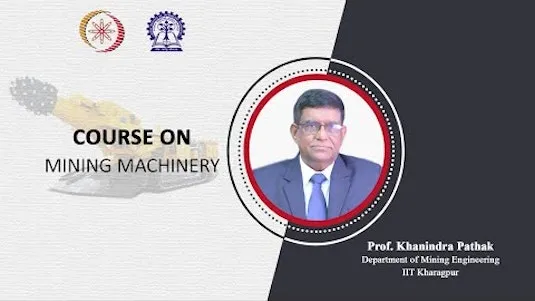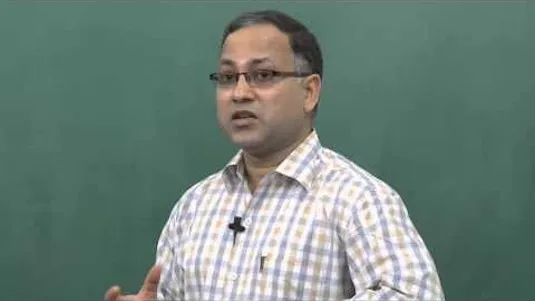
The Future of Mining? 
In 2040, the mining and minerals sector is expected to undergo significant changes. This article explores the potential future of this industry. ▼
ADVERTISEMENT
Course Feature
![]() Cost:
Cost:
Free
![]() Provider:
Provider:
Edx
![]() Certificate:
Certificate:
No Information
![]() Language:
Language:
English
![]() Start Date:
Start Date:
Self paced
Course Overview
❗The content presented here is sourced directly from Edx platform. For comprehensive course details, including enrollment information, simply click on the 'Go to class' link on our website.
Updated in [April 29th, 2023]
This course provides an overview of the future of the mining and minerals sector. It explores the risks, challenges and opportunities that the sector will face in the next two decades. Participants will learn about scenario planning and how to use it as a strategic tool to consider a range of possible futures for the minerals sector. The course will also cover the current significant challenges for the sector, the impact of rapidly changing technologies, and how these combine with changing societal expectations and global trends in several possible futures. Through interactive videos, expert insights, simulations, discussions and scenarios, participants will gain a deeper understanding of the sector and develop their own ideas about possible future directions.
[Applications]
The application of this course can be seen in the development of strategic plans for the mining and minerals sector. By understanding the risks, challenges and opportunities facing the sector, participants can use the scenario planning approach to consider a range of possible futures. This can help to inform decisions about the direction of the sector and the strategies that should be implemented to ensure its success. Additionally, the course can help to develop an understanding of the impact of rapidly changing technologies and changing societal expectations, and how these can be incorporated into strategic plans.
[Career Paths]
1. Mining Engineer: Mining engineers are responsible for the safe and efficient extraction of minerals from the earth. They use their knowledge of geology, engineering, and technology to develop and manage mining operations. As the mining industry continues to evolve, mining engineers will need to stay up to date on the latest technologies and trends in order to remain competitive.
2. Environmental Scientist: Environmental scientists are responsible for studying the effects of mining operations on the environment. They use their knowledge of ecology, geology, and chemistry to assess the impact of mining activities on the environment and develop strategies to mitigate any negative impacts. As the mining industry continues to grow, environmental scientists will be increasingly important in ensuring that mining operations are conducted in a sustainable manner.
3. Data Scientist: Data scientists are responsible for analyzing large amounts of data to identify patterns and trends. In the mining industry, data scientists can use their skills to analyze data from mining operations to identify areas of improvement and develop strategies to increase efficiency. As the mining industry continues to become more data-driven, data scientists will be increasingly important in helping to optimize operations.
4. Robotics Engineer: Robotics engineers are responsible for designing and developing robots for use in mining operations. As the mining industry continues to become more automated, robotics engineers will be increasingly important in developing robots that can safely and efficiently operate in hazardous mining environments.
[Education Paths]
The recommended degree paths for learners interested in the mining and minerals sector are:
1. Mining Engineering: Mining engineering is a field of engineering that deals with the extraction and processing of minerals from the earth. It involves the design and development of systems and processes for extracting, refining, and transporting minerals. Mining engineers are also responsible for the safety and environmental impact of mining operations. This field is growing in importance as the demand for minerals increases and new technologies are developed to extract them.
2. Environmental Science: Environmental science is a field of study that focuses on the interactions between the environment and human activities. It examines the effects of human activities on the environment, and how these activities can be managed to minimize their impact. Environmental scientists use their knowledge of the environment to develop strategies for protecting and restoring ecosystems, and to develop sustainable practices for the use of natural resources.
3. Geology: Geology is the study of the Earth's physical structure, composition, and history. Geologists use their knowledge of the Earth's structure and composition to explore for minerals and other resources, and to understand the processes that shape the Earth's surface. Geologists also use their knowledge to assess the potential environmental impacts of mining and other activities.
4. Sustainable Development: Sustainable development is a field of study that focuses on the development of strategies and practices that promote economic growth while protecting the environment. Sustainable development practitioners use their knowledge of the environment, economics, and social sciences to develop strategies for sustainable resource use and development. This field is becoming increasingly important as the demand for resources increases and the need to protect the environment becomes more pressing.
Course Provider

Provider Edx's Stats at AZClass
Discussion and Reviews
0.0 (Based on 0 reviews)
Explore Similar Online Courses

Cyber Security Course for Beginners - Level 01

VFX Compositing with After Effects: The Complete Edition

Python for Informatics: Exploring Information

Social Network Analysis

Introduction to Systematic Review and Meta-Analysis

The Analytics Edge

DCO042 - Python For Informatics

Causal Diagrams: Draw Your Assumptions Before Your Conclusions

Whole genome sequencing of bacterial genomes - tools and applications

Mining Engineering

Mining Machinery


Start your review of The Future of Mining?